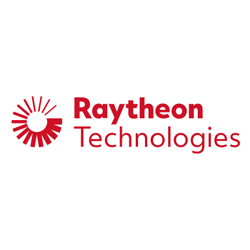What an Artificial Intelligence Researcher Fears About AI
- by 7wData

The following essay is reprinted with permission from The Conversation, an online publication covering the latest research.
As an artificial intelligence researcher, I often come across the idea that many people are afraid of what AI might bring. It’s perhaps unsurprising, given both history and the entertainment industry, that we might be afraid of a cybernetic takeover that forces us to live locked away, “Matrix”-like, as some sort of human battery.
And yet it is hard for me to look up from the evolutionary computer models I use to develop AI, to think about how the innocent virtual creatures on my screen might become the monsters of the future. Might I become “the destroyer of worlds,” as Oppenheimer lamented after spearheading the construction of the first nuclear bomb?
I would take the fame, I suppose, but perhaps the critics are right. Maybe I shouldn’t avoid asking: As an AI expert, what do I fear about artificial intelligence?
The HAL 9000 computer, dreamed up by science fiction author Arthur C. Clarke and brought to life by movie director Stanley Kubrick in “2001: A Space Odyssey,” is a good example of a system that fails because of unintended consequences. In many complex systems – the RMS Titanic, NASA’s space shuttle, the Chernobyl nuclear power plant – engineers layer many different components together. The designers may have known well how each element worked individually, but didn’t know enough about how they all worked together.
That resulted in systems that could never be completely understood, and could fail in unpredictable ways. In each disaster – sinking a ship, blowing up two shuttles and spreading radioactive contamination across Europe and Asia – a set of relatively small failures combined together to create a catastrophe.
I can see how we could fall into the same trap in AI research. We look at the latest research from cognitive science, translate that into an algorithm and add it to an existing system. We try to engineer AI without understanding intelligence or cognition first.
Systems like IBM’s Watson and Google’s Alpha equip artificial neural networks with enormous computing power, and accomplish impressive feats. But if these machines make mistakes, they lose on “Jeopardy!” or don’t defeat a Go master. These are not world-changing consequences; indeed, the worst that might happen to a regular person as a result is losing some money betting on their success.
But as AI designs get even more complex and computer processors even faster, their skills will improve. That will lead us to give them more responsibility, even as the risk of unintended consequences rises. We know that “to err is human,” so it is likely impossible for us to create a truly safe system.
I’m not very concerned about unintended consequences in the types of AI I am developing, using an approach called neuroevolution. I create virtual environments and evolve digital creatures and their brains to solve increasingly complex tasks. The creatures’ performance is evaluated; those that perform the best are selected to reproduce, making the next generation. Over many generations these machine-creatures evolve cognitive abilities.
Right now we are taking baby steps to evolve machines that can do simple navigation tasks, make simple decisions, or remember a couple of bits. But soon we will evolve machines that can execute more complex tasks and have much better general intelligence. Ultimately we hope to create human-level intelligence.
Along the way, we will find and eliminate errors and problems through the process of evolution. With each generation, the machines get better at handling the errors that occurred in previous generations. That increases the chances that we’ll find unintended consequences in simulation, which can be eliminated before they ever enter the real world.
Another possibility that’s farther down the line is using evolution to influence the ethics of artificial intelligence systems.
[Social9_Share class=”s9-widget-wrapper”]
Upcoming Events
Evolving Your Data Architecture for Trustworthy Generative AI
18 April 2024
5 PM CET – 6 PM CET
Read MoreShift Difficult Problems Left with Graph Analysis on Streaming Data
29 April 2024
12 PM ET – 1 PM ET
Read More




